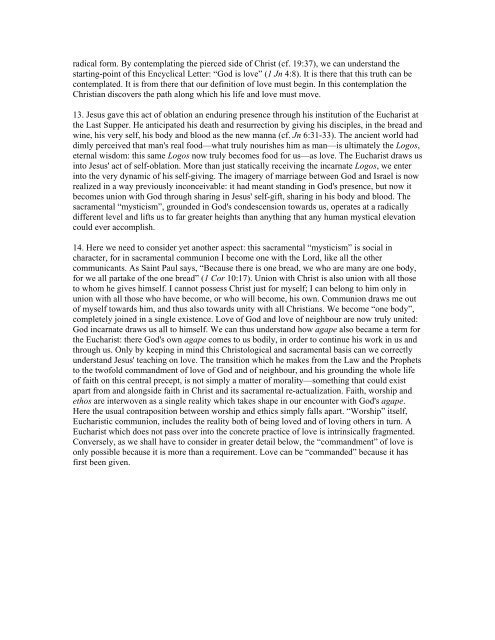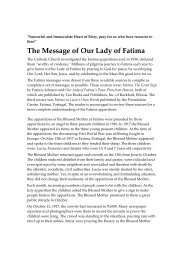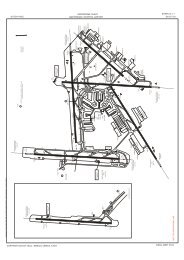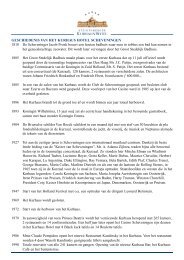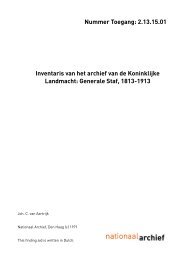God Is Love - Beeldbibliotheek
God Is Love - Beeldbibliotheek
God Is Love - Beeldbibliotheek
- No tags were found...
Create successful ePaper yourself
Turn your PDF publications into a flip-book with our unique Google optimized e-Paper software.
adical form. By contemplating the pierced side of Christ (cf. 19:37), we can understand thestarting-point of this Encyclical Letter: “<strong>God</strong> is love” (1 Jn 4:8). It is there that this truth can becontemplated. It is from there that our definition of love must begin. In this contemplation theChristian discovers the path along which his life and love must move.13. Jesus gave this act of oblation an enduring presence through his institution of the Eucharist atthe Last Supper. He anticipated his death and resurrection by giving his disciples, in the bread andwine, his very self, his body and blood as the new manna (cf. Jn 6:31-33). The ancient world haddimly perceived that man's real food—what truly nourishes him as man—is ultimately the Logos,eternal wisdom: this same Logos now truly becomes food for us—as love. The Eucharist draws usinto Jesus' act of self-oblation. More than just statically receiving the incarnate Logos, we enterinto the very dynamic of his self-giving. The imagery of marriage between <strong>God</strong> and <strong>Is</strong>rael is nowrealized in a way previously inconceivable: it had meant standing in <strong>God</strong>'s presence, but now itbecomes union with <strong>God</strong> through sharing in Jesus' self-gift, sharing in his body and blood. Thesacramental “mysticism”, grounded in <strong>God</strong>'s condescension towards us, operates at a radicallydifferent level and lifts us to far greater heights than anything that any human mystical elevationcould ever accomplish.14. Here we need to consider yet another aspect: this sacramental “mysticism” is social incharacter, for in sacramental communion I become one with the Lord, like all the othercommunicants. As Saint Paul says, “Because there is one bread, we who are many are one body,for we all partake of the one bread” (1 Cor 10:17). Union with Christ is also union with all thoseto whom he gives himself. I cannot possess Christ just for myself; I can belong to him only inunion with all those who have become, or who will become, his own. Communion draws me outof myself towards him, and thus also towards unity with all Christians. We become “one body”,completely joined in a single existence. <strong>Love</strong> of <strong>God</strong> and love of neighbour are now truly united:<strong>God</strong> incarnate draws us all to himself. We can thus understand how agape also became a term forthe Eucharist: there <strong>God</strong>'s own agape comes to us bodily, in order to continue his work in us andthrough us. Only by keeping in mind this Christological and sacramental basis can we correctlyunderstand Jesus' teaching on love. The transition which he makes from the Law and the Prophetsto the twofold commandment of love of <strong>God</strong> and of neighbour, and his grounding the whole lifeof faith on this central precept, is not simply a matter of morality—something that could existapart from and alongside faith in Christ and its sacramental re-actualization. Faith, worship andethos are interwoven as a single reality which takes shape in our encounter with <strong>God</strong>'s agape.Here the usual contraposition between worship and ethics simply falls apart. “Worship” itself,Eucharistic communion, includes the reality both of being loved and of loving others in turn. AEucharist which does not pass over into the concrete practice of love is intrinsically fragmented.Conversely, as we shall have to consider in greater detail below, the “commandment” of love isonly possible because it is more than a requirement. <strong>Love</strong> can be “commanded” because it hasfirst been given.


